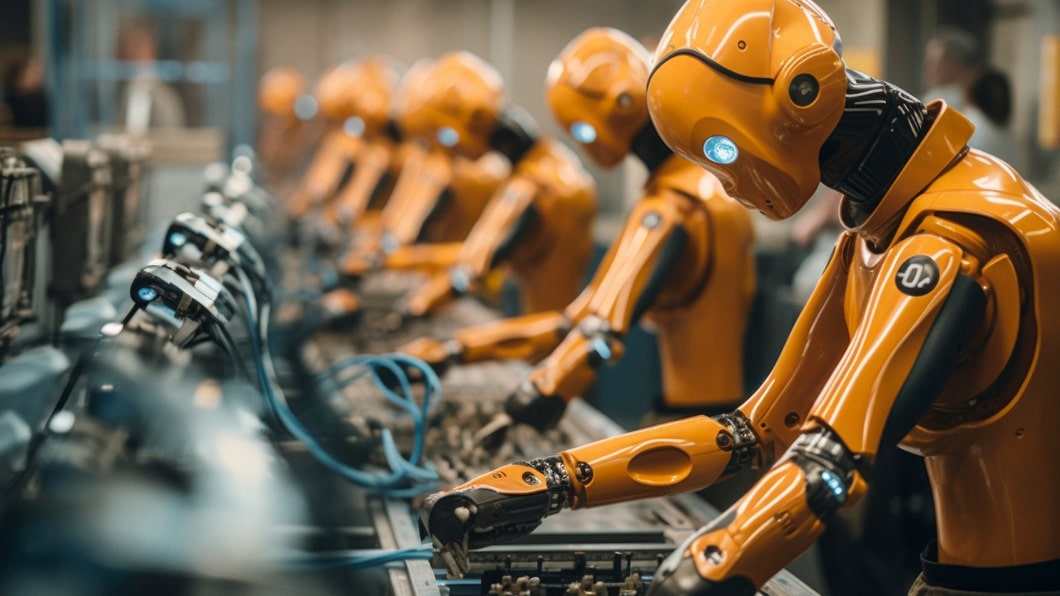
Robotic Process Automation (RPA): Shaping the Future of Work
Introduction of Robotic Process Automation
In today’s rapidly evolving digital landscape, technology has become a driving force behind the transformation of various industries. Robotic Process Automation (RPA) is one such technology that is redefining the way we work. RPA is all about automating repetitive and rule-based tasks by using software robots, which can interpret applications, process transactions, manage data, and even respond to emails. This technology has the potential to not only improve efficiency and accuracy but also create new career opportunities. While there are concerns about the impact of RPA on employment, it’s essential to note that RPA is not just a job disruptor; it’s also a job creator. In this blog, we will explore RPA, its impact on the job market, and the career opportunities it offers for IT professionals.
RPA: Automating the Mundane

Robotic Process Automation focuses on automating tasks that were traditionally performed by humans. These tasks are often repetitive, rule-based, and time-consuming. RPA software robots can mimic human actions, making them suitable for various industries and functions, including finance, human resources, customer service, and more. Some key aspects of RPA include:
- Task Automation: Robotic Process Automation excels at automating routine, rule-based tasks, such as data entry, data validation, and report generation.
- Improved Accuracy: RPA reduces the chances of human error, ensuring consistent and error-free outcomes.
- Efficiency: Robotic Process Automation enables 24/7 task execution, speeding up processes and reducing operational costs.
- Integration: RPA can be integrated with existing systems, allowing for seamless interaction with other applications.
- Scalability: RPA can be easily scaled to accommodate increasing workloads.
Impact on Jobs
There is a widespread concern about the impact of Robotic Process Automation on jobs. While it’s true that Robotic Process Automation has the potential to automate certain tasks, it’s important to clarify that RPA does not replace jobs entirely. Instead, it transforms the nature of work. Research indicates that only a small percentage of occupations can be fully automated, while a significant portion can be partially automated. This transition is reshaping job roles, creating new opportunities, and emphasizing the importance of upskilling and reskilling for the future workforce.
Career Opportunities in RPA

RPA is a dynamic field with a growing demand for professionals who can design, implement, and manage RPA solutions. IT professionals looking to embrace the technology trends of the future will find that Robotic Process Automation offers a multitude of career opportunities. Here are some of the top job roles in RPA:
- RPA Developer: RPA developers create and configure software robots to automate specific tasks. They design RPA workflows, integrate systems, and ensure the efficient execution of processes.
- RPA Analyst: RPA analysts assess business processes to identify automation opportunities. They work closely with stakeholders to define automation requirements and contribute to the selection of RPA tools.
- RPA Architect: RPA architects design the overall structure and framework for RPA solutions. They are responsible for ensuring that Robotic Process Automation implementations align with business goals and objectives.
- RPA Project Manager: RPA project managers oversee the planning, execution, and delivery of RPA projects. They manage project timelines, budgets, and resources to ensure successful RPA deployments.
- RPA Business Analyst: Robotic Process Automation business analysts bridge the gap between business requirements and RPA solutions. They gather and document business processes, create use cases, and assist in the development of RPA workflows.
The Future of RPA Careers

As organizations across industries recognize the potential of Robotic Process Automation to drive efficiency and productivity, the demand for RPA professionals is on the rise. RPA is no longer limited to large enterprises; smaller businesses are also exploring its benefits. Additionally, advancements in RPA technology, such as artificial intelligence and machine learning integration, are expanding the scope of automation. This presents continuous growth and evolving career opportunities in the RPA field.
Key Takeaways:
- RPA transforms work: RPA automates repetitive tasks, making work more efficient and accurate, and leading to the transformation of job roles.
- Job creation: RPA is not just a job disruptor; it creates new opportunities, emphasizing the need for upskilling and reskilling.
- Diverse career options: RPA offers a wide range of roles, from development and analysis to architecture and project management.
- Ongoing learning: Professionals in the RPA field must stay updated with the latest advancements to remain relevant in this dynamic industry.
Robotic Process Automation is not just a technological trend; it’s a transformative force that is reshaping the way we work. While there are concerns about its impact on jobs, it’s important to recognize that RPA is creating new career opportunities and emphasizing the importance of adaptability and continuous learning. For IT professionals, RPA represents a dynamic field with a bright future, offering a multitude of roles and the potential for high-paying careers.





